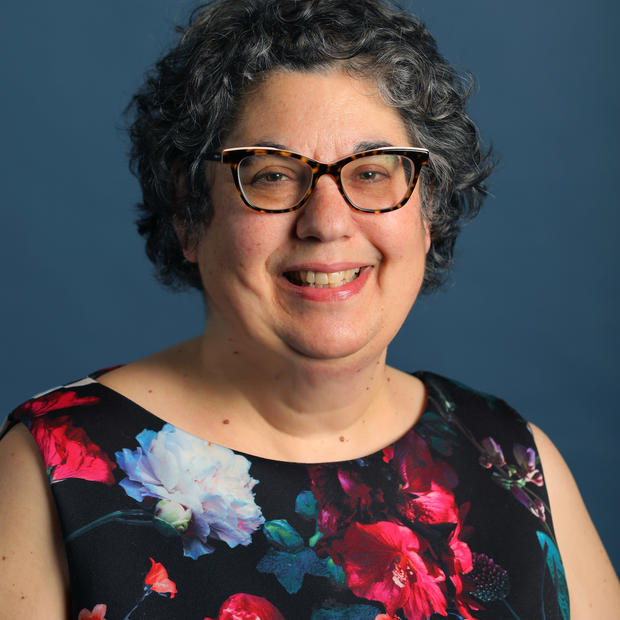The Centers for Disease Control and Prevention started advising people in early April to wear cloth face coverings whenever they go out in public to places where social distancing is difficult — like grocery stores and pharmacies. Some, but not all, Washingtonians have been following this advice.
Now Seattle and King County officials are turning this advice into a public health directive because health officials believe the coronavirus can spread easily, through sneezing, coughs and just talking or breathing. And because some people who contract COVID-19 don't have any obvious symptoms, you could be spreading the virus without knowing it.
Here’s what you need to know about the new mask directive.
Where are masks required?
People are strongly encouraged to wear face coverings whenever they are in indoor public spaces or outdoors where social distancing is not possible. This includes the grocery store, pharmacy, doctor’s office or stopping by a restaurant to pick up food. You are not required to wear a mask while driving in your car, unless you are driving a taxi, Uber or Lyft, or riding in one.
You do not need to wear a mask in your home or when you are walking around your neighborhood. But if you think it’s likely you will find yourself in close quarters with other people, maybe at the dog park, at an outdoor farmers market, on a crowded jogging or biking trail or busy sidewalk, you should wear a mask.
What kind of mask do I have to wear?
The order refers to cloth face coverings, not N95 respirators or surgical masks. They can be homemade or store bought, and they don’t even have to be anything that resembles masks. They need to cover your nose and mouth, preferably double layered. This story offers more details and suggestions, including information on how to make a mask at home.
More on face masks: Seattle crafters are making DIY masks
How will the order be enforced?
No legal enforcement by police is planned for this order, but Constantine said broad voluntary compliance is required to help stop COVID-19 transmission. Otherwise, more draconian measures may be required instead of opening up the economy, as Gov. Jay Inslee has started to do.
"We are at a precarious moment in our battle against this virus," Constantine said.
As Dr. Jeff Duchin, health officer with Public Health — Seattle & King County, explained, the mask requirement is just one part of the system needed to stop this virus. The other parts are staying home as much as possible, keeping 6 feet away from people and washing your hands or using hand sanitizer.
What if I don’t have any masks?
Even if you don’t know how to sew and don’t have a sewing machine, you could make a mask at home. U.S. Surgeon General Dr. Jerome Adams demonstrates how to make a mask out of an old T-shirt and two rubber bands in this video.
Lot of crafters are selling masks on the Etsy website. You probably have Facebook friends who have sewing machines and who might be willing to share their skills with you. Some groups are also giving them away free, and the county and city have said they would supply more masks for community groups to distribute.
A few readers have asked where you can buy masks in person and that question is a difficult one. Few stores other than grocery stores are open right now, although some markets that sell both groceries and other items may have masks for sale. You should probably call first to make sure they have them in stock.
Should I buy an N95 respirator to protect myself?
Public health officials urge the public not to drain the limited supply of N95 respirators and surgical masks, as they are crucial to protecting the first responders and medical professionals who cannot be 6 feet away from patients while saving lives. The rest of us should be able to get by with a cloth mask, plus social distancing and lots of hand washing and sanitizing.
While cloth face coverings are not as effective at protecting people from the virus as the masks doctors and nurses wear for their work, if everyone wears a cloth mask in public places, it can help stem the spread of the virus.
Those with other health conditions that make them more susceptible to COVID-19 should not go out in public at all.
How do I wash my mask?
Most masks can be either hand-washed with soap and warm water or in the washing machine. They air dry quickly, especially this time of year. If you’re buying a mask, make sure you ask how it should be cleaned, because some fabric cannot be washed in a machine.
Paper masks are not washable and should be thrown away after one use.
If your mask has a filter insert or is a respirator, the cleaning instructions are more complicated. Ask the manufacturer or search for your mask on the internet to get more information. But in general, filters are replaceable, and probably not washable.
How long can I use my mask before washing?
Most advice says to clean your mask after every wearing and to be careful when removing it from your face, by trying to just touch the straps. If your mask becomes wet, it should be removed and not worn again until it’s washed.
Remember: paper masks, like surgical masks, can’t be washed. More complicated face coverings, like N95 respirators, are designed to be worn once and require special treatment for extended use.


